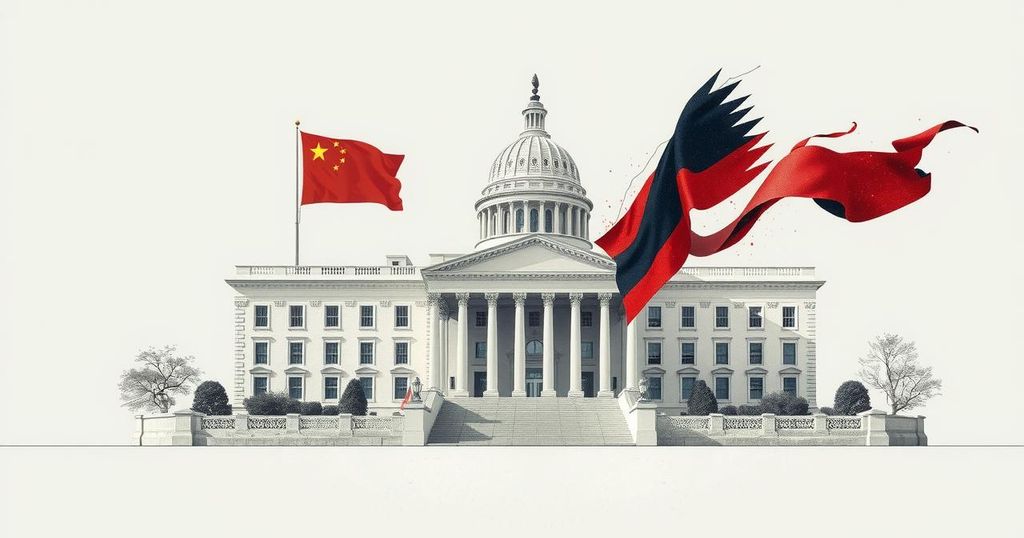U.S. Seeks New Alliances in West Africa Following Niger Withdrawal
The U.S. has withdrawn its troops from Niger, marking a significant loss of influence in West Africa. Following this exit, it is now exploring new partnerships in coastal nations like Benin and Cote d’Ivoire amid rising competition from Russian forces. Addressing growing anti-West sentiments in the region poses a challenge as the U.S. seeks to sustain military engagement against extremist threats.
The United States has commenced a search for alternative partnerships in West Africa following the withdrawal of its troops from Niger, where they had established bases over an 11-year period devoted to military cooperation and significant financial investment. This unexpected exit is perceived as a considerable setback for U.S. efforts to maintain influence in the complex Sahel region, particularly given the rise of armed groups operating in the area.
Previously established strategic ties with Niger were severed when the military government, after executing a coup in July 2023, ordered U.S. personnel to leave. The U.S. had been invested in fostering a democratic transition but struggled to navigate its relationship with the new administration, leading to this abrupt severance of military cooperation valued at millions.
U.S. military officials have begun exploring potential new partners in coastal West African nations such as Benin and Cote d’Ivoire, aiming to sustain surveillance operations while minimizing resource expenditure. However, the ongoing rivalry with Russia, which is exerting its influence in the region through the Wagner Group, creates a challenging environment for the U.S.
The U.S. maintains military presences in 26 African nations for monitoring purposes and to counteract the growing threats posed by extremist groups. Recent developments, such as the expulsion of soldiers from Chad, underscore the volatility of U.S. military operations in the region.
Experts express concern over deteriorating U.S. military influence in West Africa, particularly in light of rising anti-West sentiments resulting from historical factors and the perceived ineffectiveness of foreign troop deployments. The changes in governance across the Sahel, marked by a series of coups, have further complicated relations with the U.S., which seeks a foothold in a region now increasingly aligned with Russia.
The absence of U.S. military support has been linked to a recent uptick in violent attacks in Niger, illustrating the operational impact that drone surveillance had previously maintained. However, debates continue regarding the overall effectiveness of previous U.S. interventions and their direct correlation with local security outcomes.
As the U.S. repositions its strategies in Sub-Saharan Africa, maintaining relations with stable nations like Ghana and Cote d’Ivoire becomes a priority. The U.S. aims to facilitate joint military efforts while adapting to local leadership styles to combat growing extremist threats. Yet, historical tensions and anti-West sentiments persist, necessitating a careful approach to U.S. military presence and operations in these nations.
The U.S. formally withheld its troops from Niger as relations deteriorated after the military coup in July 2023, which led to the cancellation of a crucial security agreement and a directive for troop withdrawal. This development underscores the U.S.’s challenge in maintaining influence in West Africa, particularly amidst a landscape characterized by increasing anti-Western sentiment and the rise of countries like Russia vying for strategic partnerships in the region. The U.S. previously viewed military bases in Niger as essential to monitor organized armed groups that threaten regional and global stability.
The U.S. faces significant difficulties as it seeks to reaffirm its presence in West Africa following the significant setback of its withdrawal from Niger. The changing geopolitical dynamics, particularly the increasing appeal of Russian influence in the region, compel the U.S. to identify alternative partners willing to engage in collaborative military efforts to combat extremism. Careful navigation of local sentiments and effective engagement strategies will be paramount as the U.S. pivots its operations in the region.
Original Source: www.aljazeera.com








Post Comment